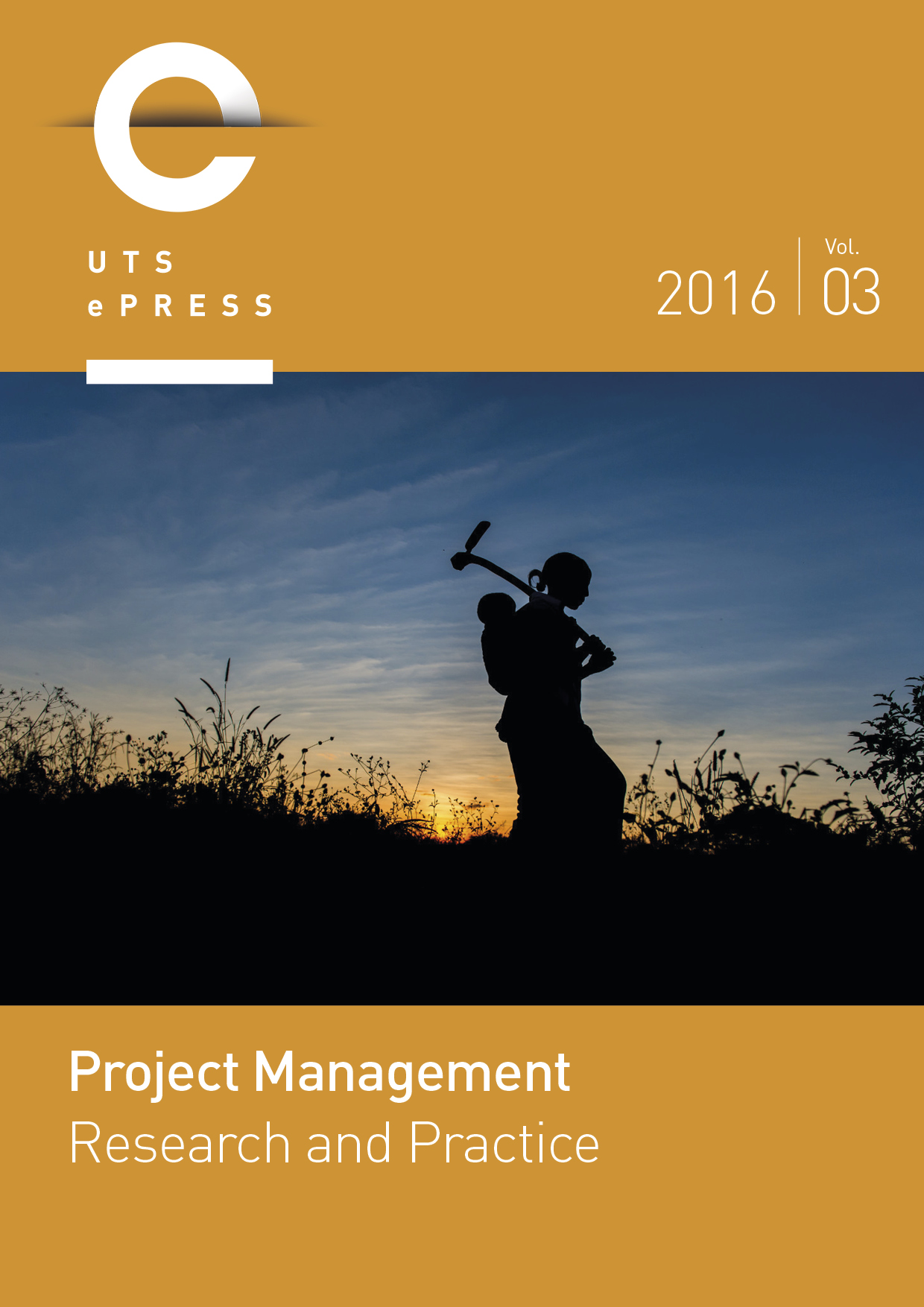Idiosyncratic musings on studying cases
Main Article Content
Abstract
For the past 60 years, organisations have increasingly been using projects and management of, by and for projects to achieve their strategic objectives (Morris & Jamieson, 2004; Morris & Geraldi, 2011). Project management (PM) makes an important and significant contribution to value creation globally. However, the ‘glocal’ context in which projects are performed shows increasing volatility, uncertainty, complexity, and ambiguity (‘VUCA’) affecting organisations and the socio-economic environment, within which they operate (Gareis, 2005). Two main dimensions are considered in research: uncertainty (and its two dimensions: volatility and ambiguity), and complexity (Bredillet, 2015). Because action takes place over time, and because the future is unknowable, action is inherently uncertain (Aristotle, 1926, 1357a). Acts involve time, irreversibility, indetermination and contingence, and uncertainty (Sanderson, 2012; Knight, 1921). "We simply do not know" (Keynes, 1937, pp. 113–114). Management situations (here both Practice and Research) are complex systems in the way they involve interdependence and connections between actors, ‘objects’ and the context.
Article Details
Section
Authors who publish with this journal agree to the following terms:
a) Authors retain copyright and grant the journal right of first publication with the work simultaneously licensed under a Creative Commons Attribution License that allows others to share and adapt the work with an acknowledgement of the work's authorship and initial publication in this journal.
b) Authors are able to enter into separate, additional contractual arrangements for the non-exclusive distribution of the journal's published version of the work (e.g., post it to an institutional repository or publish it in a book), with an acknowledgement of its initial publication in this journal.
c) Authors are permitted and encouraged to post their work online (e.g., in institutional repositories or on their website) prior to and during the submission process, as it can lead to productive exchanges, as well as earlier and greater citation of published work (See The Open Access Citation Advantage Service). Where authors include such a work in an institutional repository or on their website (ie. a copy of a work which has been published in a UTS ePRESS journal, or a pre-print or post-print version of that work), we request that they include a statement that acknowledges the UTS ePRESS publication including the name of the journal, the volume number and a web-link to the journal item.
d) Authors should be aware that the Creative Commons Attribution (CC-BY) License permits readers to share (copy and redistribute the work in any medium or format) and adapt (remix, transform, and build upon the work) for any purpose, even commercially, provided they also give appropriate credit to the work, provide a link to the license, and indicate if changes were made. They may do these things in any reasonable manner, but not in any way that suggests you or your publisher endorses their use.
